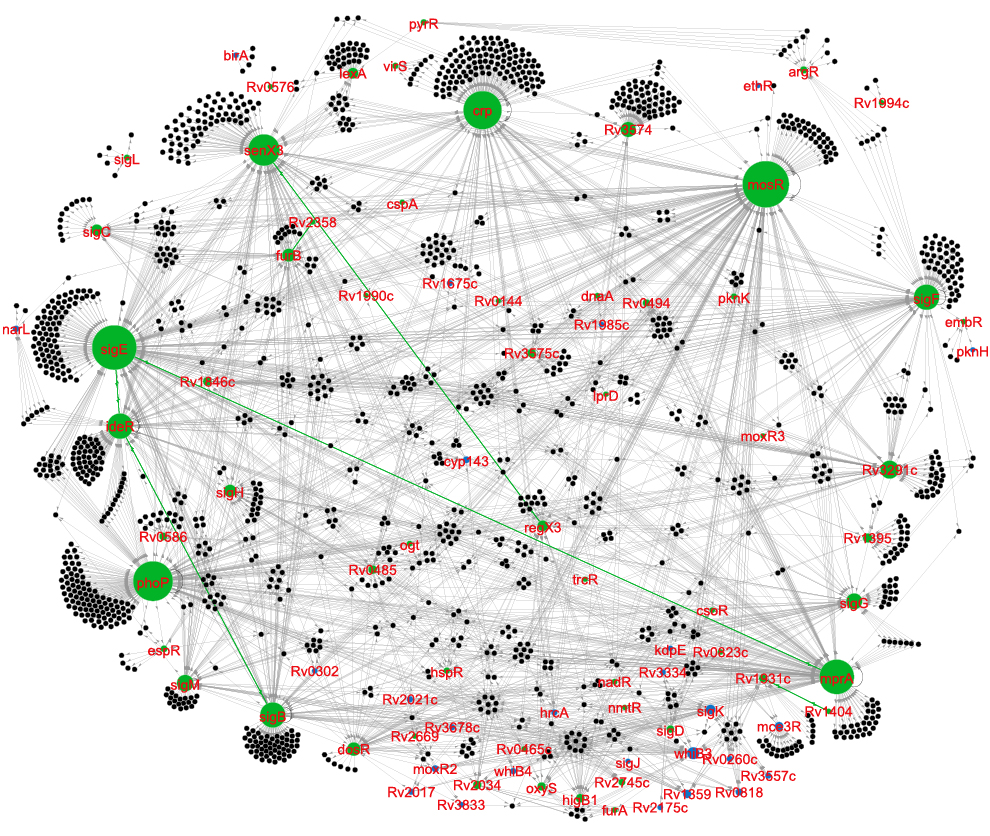Research Projects at Cosnet
Beyond The Edge: Higher-Order Networks and Dynamics Knowledge At the Tip of Your Fingers: Clinical Knowledge for Humanity Complexity Science for Sustainable and Healthy Nutrition Bridging the Gap: from Individual Behavior to the Socio-technical Man (IBSEN) Distributed Global Financial Systems for Society Dynamics and Structure of Complex Systems Foundational Research on Multilevel Complex Networks and Systems Mathematical Framework for Multiplex Networks Structure and Dynamics of Natural and Manmade Complex Systems Systems Biology of Mycobacterium tuberculosis Tackling Complexity in Physical and Biological Systems: A Computational Approach Thematic Network: Dynamics and Synchronization in NetworksSystems Biology of “Mycobacterium tuberculosis” PhoP: Signaling, Cellular Cycle and Epidemiological Interactions
DGA, 2008-2010
Summary of the project: Tuberculosis, along with AIDS and Malaria, remains one of the most deadly infectious diseases in the world. One feature that makes the disease difficult to control is the ability of Mycobacterium tuberculosis to adapt to a dormant phase, passing unnoticed to the immune system. The current vaccine against tuberculosis, called BCG (live attenuated strain derived from Mycobacterium bovis), remains the most widely used worldwide, but its degree of protection is very variable and insufficient against the respiratory form. The Mycobacterium Genetics Group of the University of Zaragoza has developed a live attenuated vaccine that confers better protection against tuberculosis than the BCG. The vaccine consists of a mutant strain of M.tb, characterized by the inactivation of the phoP gene, which significantly attenuated virulence, since the phoP gene regulates a large number of genes of the tuberculosis bacillus, including lipid membrane complexes related to virulence and other factors and various cell cycle processes. Therefore, it is very important to know thoroughly the mutant SO2 through the application of existing analysis tools, including those of Systems Biology. This project will be a first step towards the development of quantitative multi-scale models for the study of TB at the cellular and population levels. The central objective is to contribute to a better theoretical understanding of the mechanisms behind the new vaccine candidate, both in terms of its signaling system and the organization of the cell cycle. Finally, we also aim at evaluating the impact of the new vaccine through the modeling of the disease dynamics at a population level.


